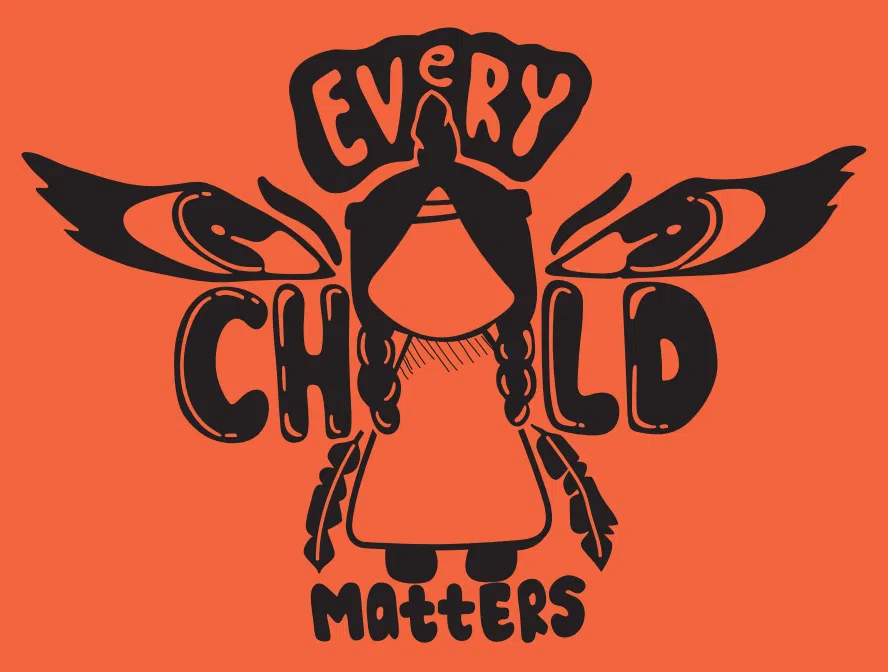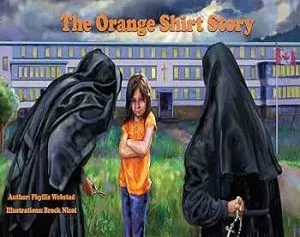
(credit: Orange Shirt Society)
Truth and Reconciliation Day or Orange Shirt Day is coming up on September 30.
“It’s a very important part because, in the past, this sort of thing would be unheard of. No one would really care about the issue because it’s something that didn’t affect them.” Says Ira Timothy. “People are starting to become more aware and more educated and more understanding of the things that Indigenous people have gone through.”
Orange Shirt Day is a very recent initiative, with the first Orange Shirt Day being recognized in 2013.
“I think it’s great that we have these now and that people are starting to take notice and that these kinds of issues are starting to arise, and people are starting to stand up and we have a lot of non-Indigenous allies be a part of Truth and Reconciliation Day and Orange Shirt Day,” continued Timothy. “I’m really happy that the message is finally starting to get across.”
The initiative of Orange Shirt Day and Truth and Reconciliation Day is to recognize residential schools and bring awareness to this part of Canada’s history.
“The message is to not repeat the mistakes of the past, to know that we’re not second-class citizens, that we’re still here that we’re not going anywhere,” Timothy adds. “I think it’s time that we need to recognize that we have to share the land and we have to be a part of the land and that a lot of rights that we had were taken away from us and we will not allow any more to be stolen and will not allow any more to be taken away from us and we will fight for these rights.”
The origin of Orange Shirt Day comes from a children’s book written by Phyllis Webstad. Where she explains her experience at a residential school.
“Read the story about what is Orange Shirt Day, about why we choose the colour orange, why we are choosing the shirt, read about Phyllis Webstad’s story and why it hits so hard and hits home, and knowing that she isn’t the first,” says Timothy. “It really affects a lot of future generations. And the intergenerational trauma hit hard and damaged a lot of people.”
Timothy goes on to say it’s important to educate yourself on Canada’s history and learn more on the subject.
“I just really want people to be able to ask questions. Don’t be afraid to do it either,” continued Timothy. “Yes, it is a sensitive topic, but the only reason we can fight it from happening again is to become aware of it.”
Many events will be happening around London on Orange Shirt Day to celebrate this initiative.
“I’m going to be a part of the Orange Shirt Day festivities recognition that’s going to be going on Monday with a lot of Indigenous organizations getting together. I’m very happy that the organization I work for, the Association of Indigenous Allied Indians, will be a part of this,” Timothy adds. “I have a TikTok account, thatnativeguy79, and every year I always put forward a message about Orange Shirt Day, talking about what it means to me and why we need to be paying attention to it. I’ll also be reading the book of Phyllis Webstad wrote for children about Orange Shirt Day on a TikTok Live.”





